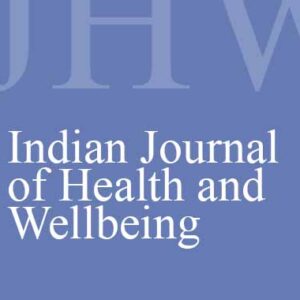
PTSD Caused by COVID-19 Exposure and its Relation with Vulnerability to Depression and Anxiety
Original price was: ₹ 201.00.₹ 200.00Current price is: ₹ 200.00.
Page: 69-73
Shefali Madali1 and Arvind Kakulte2 (Department of Psychology, Sir Parashurambhau College, Pune, Maharashtra1 and Affiliated to Savitribai Phule Pune University, Pune, Maharashtra2)
Depression and post-traumatic stress disorder (PTSD) diagnoses frequently co-occur. It has been seen that increases in stress and anxiety among individuals for more than two years into the coronavirus pandemic, with some exhibiting indications of post-traumatic stress, or what is now being called post-COVID stress disorder (Holland, 2019). A generalized feeling of anxiety and anguish has been sparked by COVID-19, especially among sensitive populations. A history of trauma and abuse increases the chance of developing depression, and those same traumatic events may contribute to the development of PTSD. The aim of the current study is to assess whether there is a positive correlation between the post-traumatic symptoms of COVID-19 and vulnerability to experience depression and severe anxiety in individuals. The sample analyzed for this study consisted of 110 individuals inclusive of both males and females within the age range of 20-35. The data were collected using a self-administered scales, i.e., HADS for measuring vulnerability to depression and major anxiety and DTS for measuring PTSD caused due to excess COVID-19 exposure. The data was coded, tabulated and descriptive statistics were conducted. The hypothesis 1 (H1) which states that PTSD caused due to excess COVID-19 exposure has a high positive correlation with vulnerability to depression is accepted as the correlation coefficient obtained for these two variables was 0.72 and the hypothesis 2 (H2) which states that PTSD caused due to excess COVID-19 exposure has a high positive correlation with vulnerability to major anxiety is also proved as the correlational coefficient obtained for these two variables is 0.89. both of these coefficients show a high positive correlation. The results show p<.001 for both the hypothesis which shows that the results are highly significant in the population.
Description
Page: 69-73
Shefali Madali1 and Arvind Kakulte2 (Department of Psychology, Sir Parashurambhau College, Pune, Maharashtra1 and Affiliated to Savitribai Phule Pune University, Pune, Maharashtra2)
